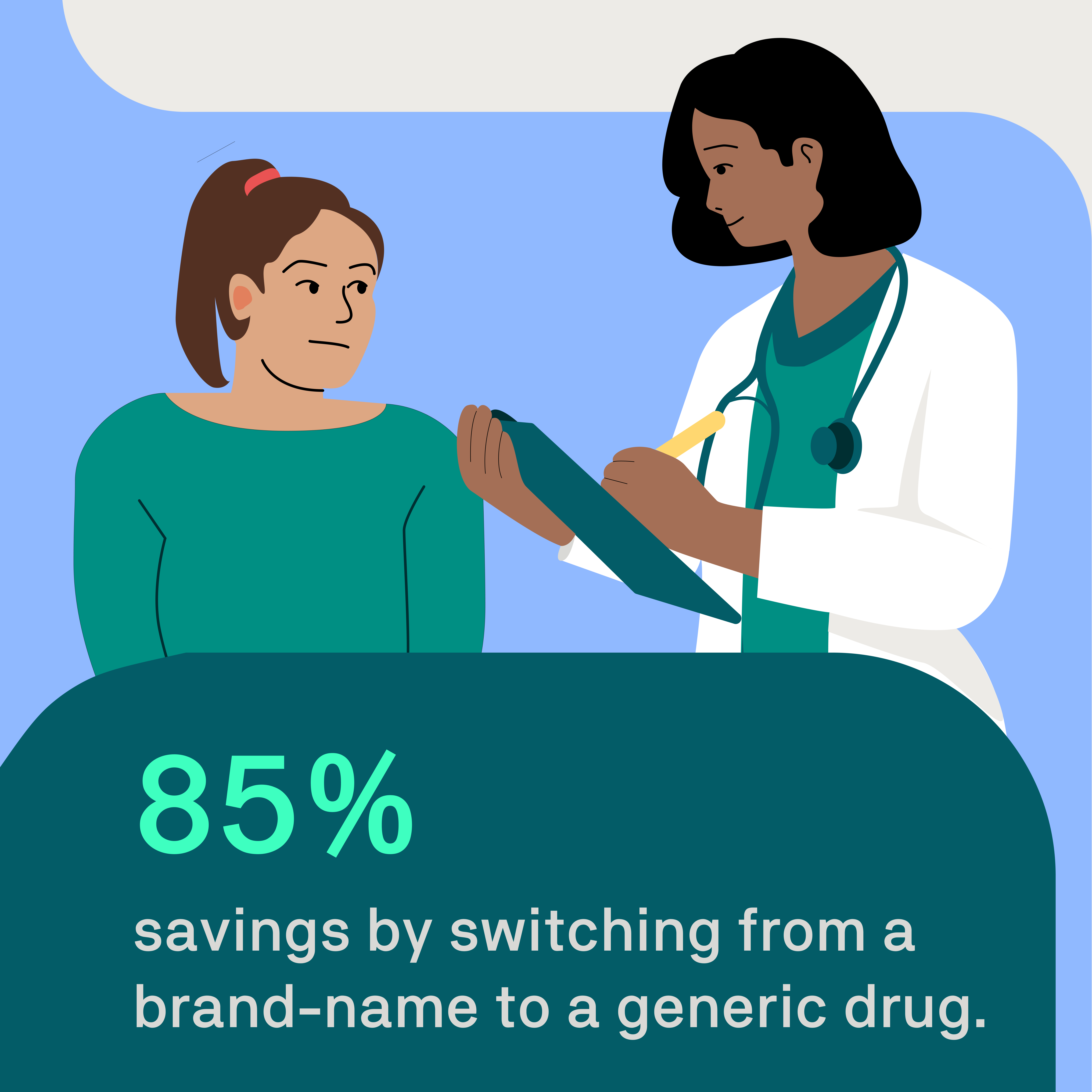What you should know as a parent if your child takes long-term medication

Take the stress out of managing your child’s daily medication
According to the American Academy of Pediatrics, 10 to 20 million children in the United States are dealing with a chronic illness or disability.1 Many of these children require one or more daily medications to manage it.
As a parent of a child who takes a long-term medication, you face many challenges — from keeping medications on hand, to ensuring your child takes their medication correctly (sometimes at school or daycare), to making sure medications are stored safely.
Here are some simple suggestions to help parents navigate the daily stressors of caring for a child who takes long-term medication.
Stop the medication struggle
Most parents can agree that giving a child daily medication isn’t fun, especially if your child is on the younger side. Here are some tips and tricks that can help:
- Trick the taste buds. If the taste of the medication is the problem, try giving your child something cold like ice chips or a few licks of a flavored ice pop beforehand. Cold temperatures can help numb the taste buds so the medication doesn’t taste as bad. You can also try mixing the medication in something tasty, like applesauce or pudding. Just check with your pharmacist first to see if the medication can be crushed and to make sure the food won’t interact with the medication. If the medication can be mixed with food, make sure your child eats all of it to get the full medication dose.
- Restore a sense of control. Sometimes children are more willing to take medication when they feel like they’re in charge. Consider letting your child decide where to take the medication, help you hold the dosage syringe or spoon, and, if old enough, administer it themselves.
- Take a positive approach. If your child senses that you feel bad about making them take the medication, they may play on your feelings and try to get out of the dose. Medication is important and should be treated as such. It’s not a punishment.
- Keep children informed. Children are smart. The more they understand about their long-term medication, the more likely they will be to take it without a fight. Try explaining in simple language what is wrong and how the medication helps them feel better.
- Work with your pharmacist. There are a number of things pharmacists can do to help with the struggle of giving daily medication to children. These include things like recommending better tasting alternative medications, providing chewable options instead of liquid when appropriate, and increasing the concentration of medication so the dose is smaller. They can even provide tips on how to talk to your child about their medication.
Take away the stress of medication management
One of the most important things you can do as a parent is make sure your child takes their medication as prescribed. Try coupling taking daily medications with your child’s normal routine, like brushing their teeth or getting dressed in the morning. With the Express Scripts® mobile app, you can get dose reminders for your child on your phone.
If your child needs to take medication at school or daycare, ask your pharmacist to provide an extra labeled bottle so you have one bottle for home and one for school/daycare. Remember to bring the medication for school/daycare in the original, child-resistant, labeled container. Provide the school nurse or daycare provider with detailed, written information, including any special instructions from the doctor, storage instructions, and information about any potential side effects. If the medication is a liquid, bring an approved measuring device.
Avoid these common medication mistakes.
Nobody is perfect and parents with the best intentions may make mistakes without even realizing it. Here are a few of the most common mistakes so you can avoid doing them yourself:
- Don’t measure medication with household utensils. Household spoons and measuring utensils vary in size and can cause you to inadvertently give your child either too much or too little powder or liquid medication. Instead, stick with the dose device included with your child’s prescription, such as a dropper or cup. If there isn’t one provided, just ask your pharmacist. It’s important to give your child the exact prescribed dose.
- Never call medication candy. It may seem like a good way to encourage your child to take medication, but doing so can be incredibly dangerous. Your child could end up taking too much medication and overdosing because they think of it as a tasty treat.
- Don’t assume children can’t open child-resistant packaging. Those special twist caps on medication aren’t foolproof. More than 50,000 children under 5 are admitted to the emergency department each year for eating or drinking medication without adult supervision.2 The best way to keep your child’s medication out of the wrong hands is to always store medication in a place that’s locked, out of sight, and out of reach.
- Always check the expiration date. Just as food expires, so does medication. Make it part of your medication routine to regularly check the expiration date and to dispose of expired medication properly.
- Don’t stop medication too early. Some parents stop giving their child medication when symptoms start to improve or if they don’t improve quickly. Always give your child their medication as prescribed for the length of time prescribed, and reach out to your child’s doctor or pharmacist with any questions or concerns.
- Always check if food is required. While some medications should be taken with food to avoid an upset stomach or to increase effectiveness, other medications must be taken on an empty stomach. Your child’s pharmacist can provide the information you need for them to get the most benefit from their medication.
Our pharmacists are here for you
We understand that parents of children taking long-term medication face many challenges, and we want to support you in any way that we can. Express Scripts® Pharmacy offers 24/7 access to specially trained pharmacists, so you always have the help you need. We also have pharmacists with knowledge about treating specific conditions, including asthma, depression, diabetes, and more.
1 American Academy of Pediatrics: Chronic Conditions (accessed February 2022): healthychildren.org.
2 Centers for Disease Control and Prevention: Adverse Drug Events in Children (accessed February 2020): cdc.gov/medicationsafety/parents_childrenadversedrugevents.html.
Posted date: March 18, 2022


